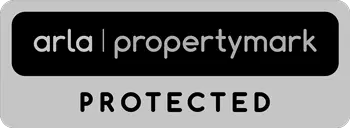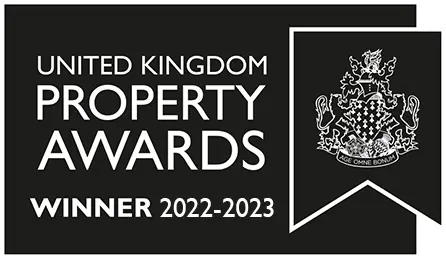Table of Contents
Table of ContentsToggle Table of ContentToggle
What is an HMO?
A house of multiple occupation, or HMO, is a rental property that is occupied by three or more unrelated tenants. An HMO property is characterised by shared living spaces and is occupied by tenants from different households, which makes it subject to specific regulatory requirements. They often house young professionals or students looking for affordable housing. They share facilities such as kitchens and toilets.
For landlords, an HMO is a way to maximise rental income from one property by renting out individual rooms, rather than to a single family. It’s become a really popular option, especially in cities like Nottingham where there’s strong demand for shared accommodation.
But HMOs aren’t just about renting out rooms. There’s more to it. You need to make sure the property meets certain safety regulations and get the right licences in place.
Councils usually have specific rules and in Nottingham, it is important to comply with local licensing laws to avoid any issues. If done correctly HMOs can bring excellent returns. However they require more hands-on management than a standard rental house.
But, you don’t have to worry because you can hire a property management company that can handle everything for you.
How Do HMOs Work in Nottingham’s Rental Market?
Nottingham is a fantastic city for HMO investments, and we’ve seen it firsthand. With its two large universities, Nottingham Trent University and the University of Nottingham, you’ll always find a steady demand for shared housing.
Students make up a huge part of the rental market, but it’s not just students—young professionals also seek out shared accommodation as they start their careers.
However, you need to know that renting an HMO in Nottingham does come with some problems, though. Because of the way the city handles licences, owners must apply for a licence before they can rent out an HMO.
There are certain building standards that homes in Nottingham City Council need to meet. This includes things like ensuring basic amenities are in place, having Emergency Lighting, and making sure portable appliances are safe for use.
In addition, some parts of Nottingham are subject to Article 4 directives, meaning that before converting a home into an HMO, you may need planning permission.
If you’re new to the HMO market, it can seem like a lot to handle, but we’ve discovered that these rules can be controlled and the investment can be profitable with the correct strategy and proper preparation.
Featured Property Investment Opportunities
But, before we discuss further, here are a few properties we highly recommend checking out if you’re serious about making a smart property investment:
- Nottingham
Deposit
.
Yield
Property Price
.
- Nottingham
Deposit
.
Yield
Property Price
.
- Nottingham
Deposit
.
Yield
Property Price
.
Why HMOs Can Be a Profitable Investment
Houses in Multiple Occupations (HMOs) are known to be a good way to make additional income from rent. You are renting out individual rooms instead of the entire property to one family or group of tenants, which can help you make a lot greater profits altogether. By taking advantage of the need for shared living areas, HMOs let you get more out of one property.
This method works very well in Nottingham. Due to Nottingham Trent University and the University of Nottingham, the city has a lot of students. It also has a lot of young workers looking for cheaper places to live.
This gives landlords a steady supply of potential tenants, which helps keep vacancy rates low. Investing in an HMO property provides landlords with a fixed monthly income, as rents from multiple tenants accumulate regularly. Even if one tenant moves out, the other rooms are still generating income. So you aren’t left covering an empty property.
It goes without saying that there are additional duties involved in running an HMO. Compared to a normal rental there may be a little more control required to ensure the property satisfies local licensing requirements and safety laws.
Benefits of Investing in HMOs in Nottingham
Higher Rental Yields
Compared to regular buy-to-let properties, HMOs provide a considerable benefit when it comes to raising your rental income. You can significantly increase your monthly income by renting out various rooms rather than depending on a single renter or family to fill your house.
For instance, a single-family renting a standard three-bedroom home may earn about £800 per month. However, if you have an HMO with different room rentals. You can be spending £1,500 or more a month.
Because there is simply more potential income from a single property. HMOs are a very alluring financial choice, which is why many landlords use them.
Consistent Tenant Demand
One of the main reasons for investing in HMOs in Nottingham is the city’s strong and consistent demand for shared housing. Thousands of students require inexpensive housing each year due to the city’s two major universities Nottingham Trent University and the University of Nottingham.
Keep in mind that students aren’t the only ones pushing this demand. Those just starting out in their careers, along with many other professionals, are searching for inexpensive housing options.
Since the city has a strong job market, HMOs are a good option for professionals looking for a shared flat. This dual demand from students and professionals means that your HMO is much less likely to sit empty, helping you maintain a steady rental income throughout the year.
Risk Diversification
Another big benefit of HMOs is how they spread out the risk. If your tenant leaves a typical rental property, you can be left without any rental money while you look for a new tenant.
With an HMO, however, you still have rooms occupied even if one renter moves out, so the rent continues to flow in. This tenant diversity increases your financial security and protects your revenue stream.
In other words, you’re not depending on one individual to pay for everything, which may make HMOs a more secure option for investors.
Affordable Entry Points for Investors
For new investors, Nottingham is a great place to start because its real estate market is significantly more affordable than those of big cities like Manchester or London. To start an HMO, you don’t need a lot of money as real estate prices in Nottingham are often lower.
Given the low cost of real estate and the high demand for rental properties. Nottingham is a desirable location for HMO investments. Here’s where you can get a greater return on your investment and get more value for your money without paying out a big sum upfront.
Demand from Students and Professionals
Nottingham is a diversified and active city with a tenant population that includes both students and young professionals. While students make up a significant component of the rental market, they are not the only ones looking for shared housing.
Many young professionals, particularly those just starting out in their professions, are looking for economical and flexible housing options. You can guarantee that your property is occupied and that your rental income is steady throughout the year by providing an HMO that appeals to both types of renters.
Essential HMO Licensing Requirements in Nottingham
When investing in an HMO (House in Multiple Occupation) it is important to know the local licensing requirements of Nottingham. Compliance with Nottingham’s unique set of regulations guarantees both the protection of your investment and the safety of your tenants.
Landlords must adhere to mandatory HMO licensing requirements in Nottingham to ensure their properties meet safety and occupancy standards.

Initiate a powerful sequence of your property growth and reinvestment.

Initiate a powerful sequence of your property growth and reinvestment.

Unleash how successful investors build wealth, reduce financial stress, and achieve financial freedom.
Overview of HMO Licensing Rules
If you are renting a property to three or more people from different households who share common areas such as a kitchen or bathroom, your property is classified as an HMO.
That’s true across the UK, including Nottingham. But just knowing this isn’t enough—you need to make sure your property is up to code.
In Nottingham, HMO properties require careful attention to regulations, including obtaining an HMO licence under mandatory HMO licensing rules. Landlords must also ensure compliance with the Housing Act, which sets forth national standards for residential properties, including those designated as HMOs.
Investors must also navigate selective licensing schemes and additional licensing schemes, especially when dealing with self-contained flats. Ensuring compliance with mandatory licensing and other licensing schemes is essential for operating within Nottingham’s rental market.
The council doesn’t just hand out HMO licences. Nottingham City Council wants to be sure that any shared property is safe, well-maintained, and properly equipped to handle multiple tenants. Local authorities in Nottingham enforce housing regulations and licensing to ensure that all accommodation, especially HMOs, is safe and well-maintained.
This means you must ensure that your property meets all of the criteria. Fire safety is extremely important—you must have operational smoke alarms and carbon monoxide detectors, as well as suitable fire exits.
Another thing that’s often overlooked is making sure the communal areas, like kitchens and bathrooms, are up to standard. If the council believes your facilities won’t cope with the number of tenants, your licence could be denied.
Now, if this feels like a lot to take on, you’re not alone—many first-time HMO investors find the process a bit daunting. But once you know what’s required, it’s easier to manage. The council is strict, yes, but with good reason.
They want to ensure landlords provide safe, comfortable living conditions for tenants. So, it’s really in your interest to meet these standards, both for the security of your property and to keep your tenants happy.
Nottingham-Specific Compliance and Safety Regulations
Nottingham takes its HMO licensing requirements a step further than some other cities, especially with its selective licensing scheme. In some areas, this scheme requires landlords to apply for a licence for any rental property—not just HMOs.
For properties rented as HMOs, landlords must follow the additional licensing scheme, which requires obtaining an HMO license. Selective licence fees are imposed by the council to regulate rental properties and maintain housing quality in designated areas. If you need further information on the new scheme and its application process, it’s essential to check with the local council to ensure compliance.
This is where things can get a bit tricky. Before you even think about buying a property to turn into an HMO, it’s important to check if the property falls under this scheme. This ensures you’re following all the correct steps from day one.
There’s also Article 4 Directions, which applies to specific areas in Nottingham. Under this rule, if you want to convert a single-family home into an HMO, you’ll need to get planning permission first.
This is really important because it can impact your investment plans. Make sure you know whether or not the property you’re looking at is in an Article 4 area before moving forward. In addition to these licensing rules, the council places a heavy emphasis on safety regulations. For landlords, this means your HMO will need proper fire safety equipment.
We’re talking about fire doors, smoke alarms, and even fire escape routes, depending on the property layout. And if your HMO has more than one floor, emergency lighting is often a requirement to help tenants safely exit the building during an emergency.
One final thing to be aware of is space. The council sets minimum room sizes for HMOs—single bedrooms must be at least 6.51 square metres, while double rooms should be 10.22 square metres or larger.
This ensures tenants have enough space to live comfortably. Skimping on this can cause big issues when you apply for or renew your licence. If you don’t meet these standards, the council might refuse to approve your HMO.
Staying compliant with Nottingham’s specific licensing and safety regulations might seem like a lot, but it’s all about ensuring that your property is safe and legally sound.
Strategies for Achieving Success with HMOs
Investing in HMOs can be a profitable investment, but success depends on a sound strategy. From selecting the ideal site to selecting a property that meets market demand, each step is critical.
Let’s look at some of the strategies that will help your HMO investment prosper in the Nottingham market.
Evaluating Location and Understanding Demand
When it comes to property investing, location is essential, and this is especially true for HMOs. It is not enough to just find a cheap or available property. Think about where tenants may wish to live.
Several areas of Nottingham, like Lenton and Beeston, are quite popular with students because of their easy access to facilities and close proximity to universities. On the other hand, West Bridgford is appealing to young professionals who want to live near the city centre but would rather be in a quieter suburban area.
To really understand where to invest, it’s crucial to look at the tenant demand in the area. Are students your primary target? Or perhaps young professionals? Each group has its own needs.
Students often want to be within walking distance of their university and tram routes, while professionals might prioritise transport links and parking. You’ll have a better chance of keeping rooms occupied all year long if you provide an HMO that fits the needs of the tenants.
Choosing the Right Property for an HMO
Selecting the right property isn’t just about buying a house with enough bedrooms. It’s about finding a property that can be easily converted into a comfortable, safe, and appealing HMO.
For starters, you need to consider whether the layout of the house will work for multiple tenants. Does it have enough shared space? Can you convert existing rooms into additional bedrooms without sacrificing comfort?
One of the key things to look for is a property that has well-sized bedrooms and plenty of shared living areas, like a large kitchen or lounge. Tenants, especially young professionals, don’t just want a room to sleep in—they want a space where they can relax and feel at home.
It’s also worth considering extras like private parking, which can be a big selling point in areas where parking is limited. Before committing, always double-check whether the property falls under Article 4.
Setting Realistic ROI Expectations
When investing in an HMO and thinking about how much money you could make from rent, it’s easy to get over-excited. There are still things you need to be aware of, even if the return on your investment is better than with a normal rental.
You’ll need to account for additional costs that come with running an HMO, such as licensing fees, regular maintenance, and higher utility bills if you’re including them in the rent.
Start by calculating what you can reasonably charge for rent based on the area and the competition. Once you know how much money you can make by renting out the house, think about how much it costs to run, including any fixes that need to be done on daily basis and legal fees.
When you run an HMO, you have to meet the needs of multiple tenants, so you should make sure that your expected rental income is more than what it costs to run the business. In an HMO setup, there are a number of costs you’ll need to cover, and these can add up quickly.
Licensing fees are a given, but you’ll also have to think about maintenance, keeping the property compliant with local regulations, and taking care of things like utilities if they’re included in the rent.
When setting your rent, it’s essential to find that sweet spot—high enough to ensure a good return but competitive enough to keep tenants interested. One smart move is to leave a buffer in your budget for unexpected costs. Repairs, tenant turnover, and possible void periods (where rooms sit empty) can affect your profits.
This will give a clear picture of your income when these costs are considered. This way you can prevent future financial surprises and set reasonable ROI expectations.
Why HMO Investors Should Choose Off-Plan New Builds Over Refurbishments
Off-plan new builds are becoming a popular choice for many investors, and here’s why.
To begin, off-plan new properties are custom-made for modern tenants. They immediately attract tenants with their modern layouts and amenities. New build, in contrast to older properties, is typically ready to rent out the moment it is completed.
Cost predictability is another major advantage. Hidden repairs and other unexpected costs often pop up while renovating older properties. Because the price of a new construction project is typically set in stone, investors can more easily budget for it.
Another big advantage is how well it uses energy. Tenants should expect to pay less for their power bills because of new construction that is designed to save energy. Renters will find this enticing, and it may even boost the property’s value in a competitive market.
Meeting safety regulations is crucial for any rental. Older properties may require costly upgrades to comply with HMO standards. New builds already include the necessary safety features, which saves time and reduces legal risks for investors.
Maintenance is another thing to think of newly constructed houses are easier to maintain than old houses. This results in lower maintenance requirements and more consistent revenue flow, freeing up investors to focus on expanding their property rather than constantly fixing problems.
Also, the high-value tenants are attracted to newly constructed properties. Modern homes have better occupancy rates and shorter rental periods because people are willing to pay a premium for them. This gives another chance you as an investor to enjoy increased income.
The last point is that a lot of new construction off-plan homes have structural faults covered by warranties for a few years. Because of this, investors don’t have to worry about unforeseen expenses.

Key Statistics on Nottingham’s HMO Sector
Any serious investor needs to understand the numbers underlying Nottingham’s HMO business. The information makes it easier to see why this city is a top choice for HMOs and where the greatest prospects are.
The number of students in Nottingham significantly contributes to the demand for HMO properties. There is a consistent influx of students every year because of its two major universities, Nottingham Trent University and the University of Nottingham.
The proximity of these areas to the universities has made them particularly desirable for HMO investments: Lenton, Beeston, and Radford. As evidence of how important shared housing is in these neighbourhoods, HMOs make up about 30% of the rental houses in these districts.
But it’s not just students driving demand. Nottingham is also home to a growing number of young professionals who prefer the affordability and flexibility of shared living.
People who are moving to the city often choose HMOs because there are more job opportunities in areas like tech, healthcare, and education. In particular, this is true if the HMO is near transportation hubs and shopping areas. Rates of occupancy stay high all year because of this, and many HMOs hit rates of 90% or more.
HMOs in Nottingham typically outperform single-let residences in terms of rental yields. A well-managed HMO can bring in a lot more money; average monthly room rentals are between £400 and £600.
It is evident how different this is from a normal single-let home, where you may anticipate paying approximately £800 a month in total. For investors, one of the main incentives to go into the HMO business is the possibility of several sources of income from a single property when it has multiple tenants.
But it is important to remember that one of the key factors in the market is Nottingham’s selective licensing structure. Under this plan, which guarantees landlords uphold safety and living standards, almost 30,000 properties in the city are covered.
In addition to the extra paperwork and expenses associated with adhering to the program, renting houses becomes better overall, which draws in better tenants.
By keeping an eye on these statistics, you can better position your investment to take advantage of the high demand, strong yields, and long-term potential of Nottingham’s HMO market.
Conclusion
As with any investment, investing in HMOs in Nottingham has a significant potential for better profits, but it also demands careful consideration and planning.
The city’s growing student population and growing demand from young workers mean that there are always people looking to rent. Because of this demand and the fact that real estate prices are still pretty low in some places, HMOs are a very appealing choice for buyers.
But it’s not by chance that people who work in the HMO market do well. It is very important to pick the right location, know what your potential renters want, and make sure your property meets all safety and licence requirements.
Effective HMO management is essential for investors to meet housing standards and avoid non-compliance. A reliable property management service can handle licence application and ensure smooth operations. With proper due diligence and support from an experienced executive board, you can secure a profitable investment. For tailored guidance , please contact us today.

Area Guide
Danny Bell
I’m Danny, one of the consultants here at Flambard. Having grown up in and around various sports teams and a family real estate business, my sociable, completive nature has excelled me in such a challenging yet rewarding job.



















 Exclusive Property Launch Invitations
Exclusive Property Launch Invitations Customised Market Reports
Customised Market Reports Exclusive Access to Off-Market Properties
Exclusive Access to Off-Market Properties Networking Events
Networking Events





